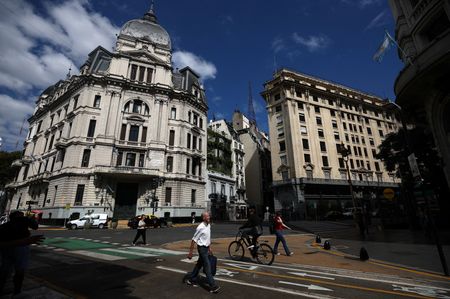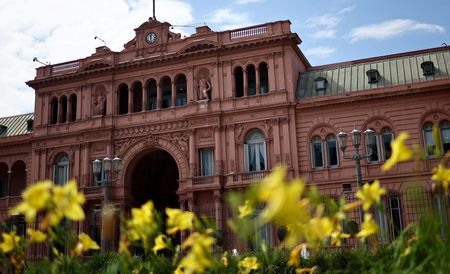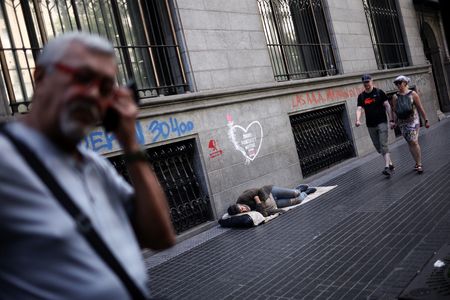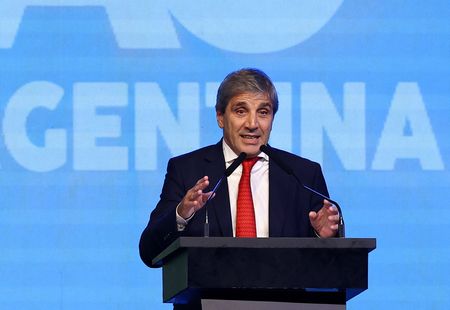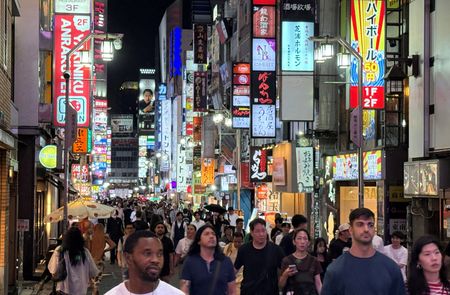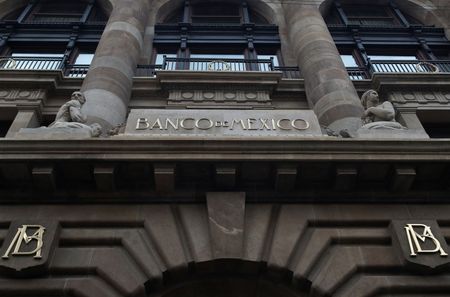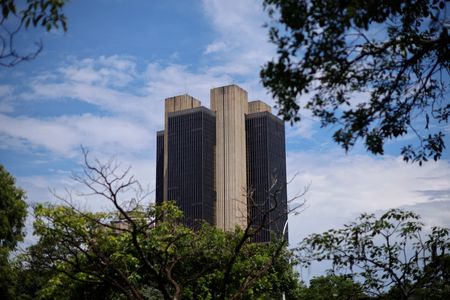By Lucila Sigal
BUENOS AIRES (Reuters) – Argentina is targeting a $20 billion deal with the International Monetary Fund, Economy Minister Luis Caputo said on Thursday, formally putting a figure on the long-mooted program for the first time as he looks to calm local market jitters.
The South American grains-producing nation, which has been battling triple-digit inflation, depleted reserves and rising debt, has been in talks with the IMF for months, though neither side had previously put a number on the planned deal.
A new program would be the country’s 23rd with the IMF if approved, and is seen helping bolster the central bank’s reserve levels, strengthening the government of libertarian Javier Milei and defusing debt repayment risks in the years ahead.
“What we are looking for with this agreement is that people can rest assured that the pesos that exist are backed by the central bank,” Caputo said.
“That will make us have a healthier currency, with less inflation, with less poverty.”
He added that the “amount we agreed upon with (IMF) staff – which ultimately the board will decide if it’s approved or not – is $20 billion.”
Argentina’s markets have wobbled in the last week amid question marks over the IMF deal and fears over a potential faster devaluation of the peso currency, currently held in check by strict capital controls and a so-called “crawling peg.”
IMF spokesperson Julie Kozack said the fund was discussing a “sizeable” loan with Argentina, but stopped short of confirming the $20 billion figure.
She said that the amount was “ultimately to be determined by our executive board.”
Argentina’s country risk index fell 14 points to 755 basis points on Thursday, while the local S&P Merval stock index edged up 0.5% and sovereign bonds gained 0.3%, with investors seeing some of the upside already baked in.
REBUILDING RESERVES?
Argentina’s central bank has been forced to sell record amounts of dollars to support the peso over the last fortnight, a worry with net foreign currency reserves already at least $4 billion in the red.
The government says a new deal will bolster the central bank’s accounts and allow the country to start undoing years-old capital controls it says stymie business and investment.
Milei cut the peso’s value by more than half soon after taking office in late 2023 and rolled out strict austerity measures to counteract years of overspending.
On Thursday he said that the timeline for undoing currency controls would depend on how fast the country received new IMF funds, and signaled that there would likely be “no room” for a sharp devaluation in the wake of an eventually deal.
Argentina is the IMF’s largest borrower by far and is still paying back a $44 billion deal from 2022 that replaced a failed 2018 program.
Reuters reported on Tuesday that some $8 billion of the funds would shore up the central bank’s reserves, with $12 billion going toward principal and interest owed to the organization.
Some local media had reported much smaller figures for the fresh funding, Caputo said, adding to market unease.
The IMF board should meet in coming weeks to vote on the deal, he added.
Argentina is also looking for funding from development banks such as the World Bank, the Inter-American Development Bank and the CAF – Development Bank of Latin America and the Caribbean to further boost foreign reserves.
Total gross reserves currently sit around $26.25 billion, but have fallen this year.
The government is looking to nearly double that, Caputo said, with the additional funding.
(Reporting by Buenos Aires bureau; Additional reporting by Rodrigo Campos and David Lawder; Writing by Kylie Madry; Editing by Adam Jourdan and Mark Porter)

